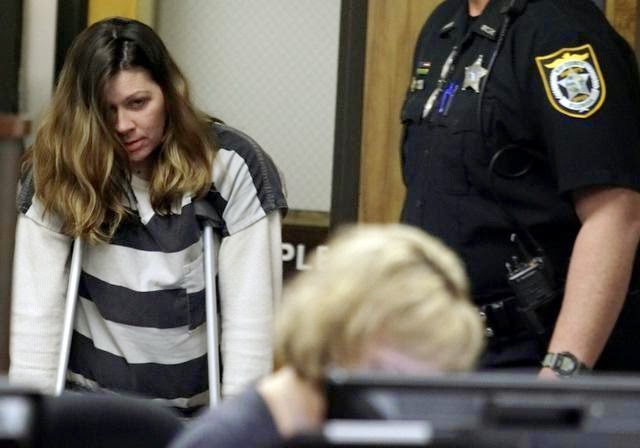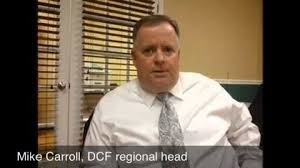U.S Government- The Largest Human
Trafficker Of Children In The World.
In the United States, most Americans
have no idea and extent of the horrible things that our Federal,
state, county and local governments do to it's own citizens
especially children. Now I fully realize there are real child abuse
cases and they need to be dealt with swiftly and accordingly however
most child “neglect and abuse” cases in America are complete
fabrications made for the benefit of selling children for government
profit. Now you would think that with all the legislation in the USA
and laws that have been passed regarding so called “protection”
of it's own citizens and all the hollering and complaining our own
government does in the United Nations against other nations such as
China, Thailand, the Philippines, India and the like in regards to
child trafficking, that in fact our government would have a spotless
record and be an outstanding example of how to protect children from
human trafficking. However, just the opposite holds true, yes the
word hypocritical can and should be appropriately applied here to all
American Government agencies in regards to all U.S children. If one
just took a few minutes to do just a little research on this
important subject matter, you would discover indeed that our American
children are being bought and sold by our own government and just as
sadly, the Christian Community does very little about it !
Something else most Americans are not
well enough informed about nor take Biblical action is that their
hard earned tax dollars support various state, county and local
programs where by children are “legally” stolen for profit. How
can this be you ask ? Fairly simple as it turns out; The culprit is
the Federal Title IV programs where by states, counties and local
municipalities/ Family Courts and other courts as well as foster and
adoption agencies are that are awarded billions of tax dollars
annually to take children from good and healthy parents. Were you
aware of actual “head hunters” who are are also employed through
social services and various government agencies that look for
children to steal ? I'll bet you(if I were a betting man) that you
were unaware of this. You see, the system operates so that state,
county and it's social services agencies can easily take children
from good parents and make a huge financial windfall on each child
taken. Children are taken from good parents through false
allegations of abuse and the children are later often times sold to
foster care agencies or adoption agencies. Federal monies are easily
gained as the more children that are as identified (often times) as
being “in crisis”(These children are often from poor families and
typically blonde in hair color and also have blue colored eyes), the
more cash courts and governments make. Profiteering at the expense of
children's lives though use of false abuse and or neglect allegations
against parents has made many a judge, lawyer, court and government
employee rich through these government monies as well. Now you may be
asking yourself, what kind of evil person does, this? Well, It's a
well documented fact that many Child Protection Workers, social
workers, psychologists, psychiatrists, cops, teachers, judges,
lawyers lie to snatch children from millions of parents in the USA
each year. It's the cold hard cash that attracts these evilist's to
do such diabolical and wicked things as take lovely children from
great mommy's and daddy's. See video- http://youtu.be/ztEqMounuRU
Domestic Violence Workers have also
been known to get into the act since it is their desire to eliminate
men and families as God intended anyway, you can see these Domestic
Violence workers visiting schools talking with teachers, children and
school officials trying to drum up business. They also get a huge
chunk of Title IV Federal monies as well and just like the other fore
mentioned evilist's who participate in stealing children for cash,
many of these Domestic Violence Workers also lie to gain cash. It's a
feeding frenzy for the evilist's these days. Our legislators and even
those elected to to the Executive branch are well informed of the
child stealing and profits made but these government leaders by and
large want nothing to do with changing the system and ridding the
lies. Corrupt Federal Legislators like Charles Shummer are quite
content with the billions of dollars that flows from our Federal
Government to these legislators pockets and their home political
districts. Millions of children are stolen illegally from corrupt
government agents and there is little protection in the law from
them. I suppose if you had enough money or have a personal
relationship with one of these corrupt government leaders, a phone
call to the “right people” could be made on you and your child's
behalf to rescue them from the claws of these wicked people but in
reality, but who of us has a political friend and ally to get what is
already guaranteed to us in our US Constitution ? We should not have
to be concerned about, nor have fear that our child will hurt
themselves playing or have an accident and then CPS, Government
agents, cops, teachers, DV workers and the like will be like vultures
that will come and take away our child making false allegations of
abuse against us- http://youtu.be/y9k-1Du74mg
. Please remember, if you ever are hauled into Family Court or in
front of CPS agencies, the law says everything must be decided “in
the best interest of the child” meaning the government can do
anything it wants at anytime with your child and you have NO
legitimate claim nor recourse. You are at the total mercy of the
judge and or government agency. As a parent, you can be court ordered
for all sorts of psychological, physical and other tests, all
returned finding you without fault or issue yet for no real or
appropriate reason, your children can still be taken away from you,
and that includes having your parental rights terminated for no real
or appropriate reason as well.
Parents who home school their children
and or Christians in the USA are especially vulnerable to being
falsely accused of abuse these days and should take special note of
what I am sharing here and prepare for action to protect their
children and their families at all costs ! Please note that anytime
the government cannot control, manipulate or indoctrinate persons
with government propaganda, the entire family becomes suspect and is
put on a watch list by various government agents who look for an open
door to destroy the family unit. The family unit in America is in a
purposeful cross hairs for destruction by government paid workers
with their wealth of taxpayer funded Federal Title IV programs.
As well, In case you were uninformed,
children in foster care and adoption agencies are inappropriately and
horrifically often times being drugged up with psychotropic
medications as young as three years old http://youtu.be/ISFPJL66p4c
. I can tell you as a professional therapist that there is no child
at the age of 3 that will need to be medicated with psychotropic
medications for any reason-ever ! The only and sole purpose of
medicating the vast majority of children while in foster care and or
in foster care type housing is to cause them to be domicile, that is
to force the children in care foster care more compliant and more
easily to manipulate. The social experiments that have been occurring
especially with our boys in schools for years now have also been
extended to all children and adolescents in foster care and adoption
agencies. Since Feminists have been the ones mostly insistent to
destroy the male gender, they are also the main force behind our male
children with mental health diagnosis such as Attention Deficit
Disorder or Attention Deficit Hyperactivity Disorder then pollute
their minds with psychotropic medications such as Ritalin. These
anti-christian women's groups for years now have looked to destroy
God's plan for the family, there are many so called trained mental
health professionals that are in place already to destroy more
children as children are often seen as a liability and not an asset
to these feminists.
We are commanded by our Lord Jesus to
pray for our enemies and that we must do but unless Biblical
Christians get up off their butt's soon and fight back at all costs,
most of our children will be gone. There are over 50 million children
that have been murdered through abortion in the USA so children
living outside the womb are the next obvious target by evilist's. We
need Godly men of action(James 2:17-20).This is and can be a very
frighting situation and season for the ill equipped Christian and or
family. Families should take this article as a very serious call to
action and a warning to beware of just what the U.S and all it's
states, counties and local governments are involved in. The US and
it's states governments are largely not interested in helping people
in their God given liberties of “life, liberty and the pursuit of
happiness” as documented in our Deceleration Of Independence. The
question for you and I has become; do you love your children and
family enough for America to once again become “home of the brave”
? Meaning that we stand up and protect our children and families from
wickedness, or do we stand aside and let evilist's go on with their
onslaught against our family, friends and neighbors ???
Please be sure to view all three of the
videos in this article. It will hopefully ignite your soul to do
something to fight back and get our children back !
Psalms
37:17 For
the arms of the wicked shall be broken: but the LORD upholdeth the
righteous.
http://blackroberegimentpastor.blogspot.com/2012/02/us-government-largest-human-trafficker.html

















